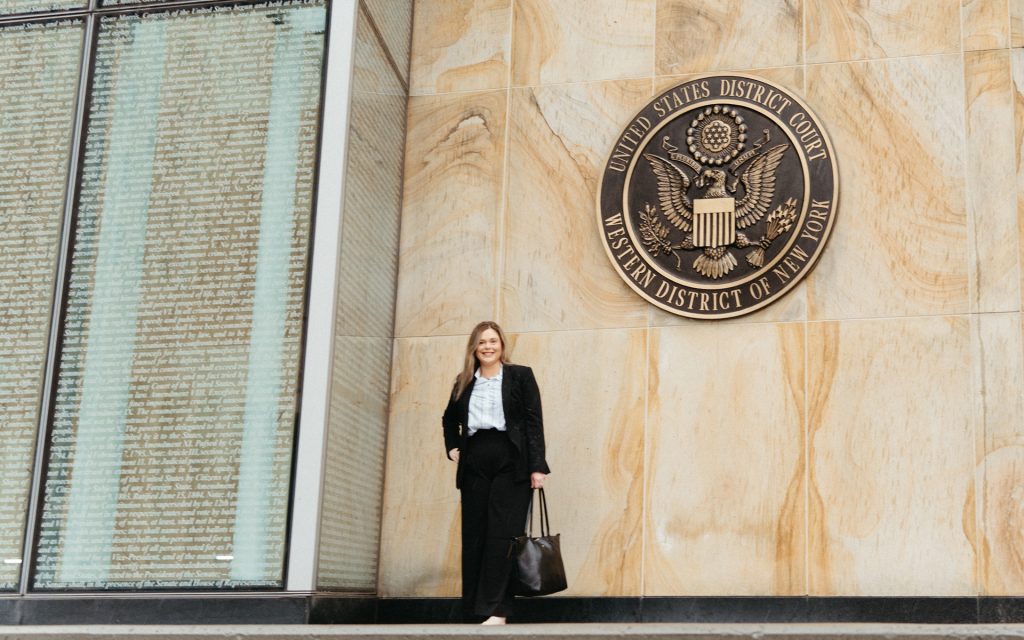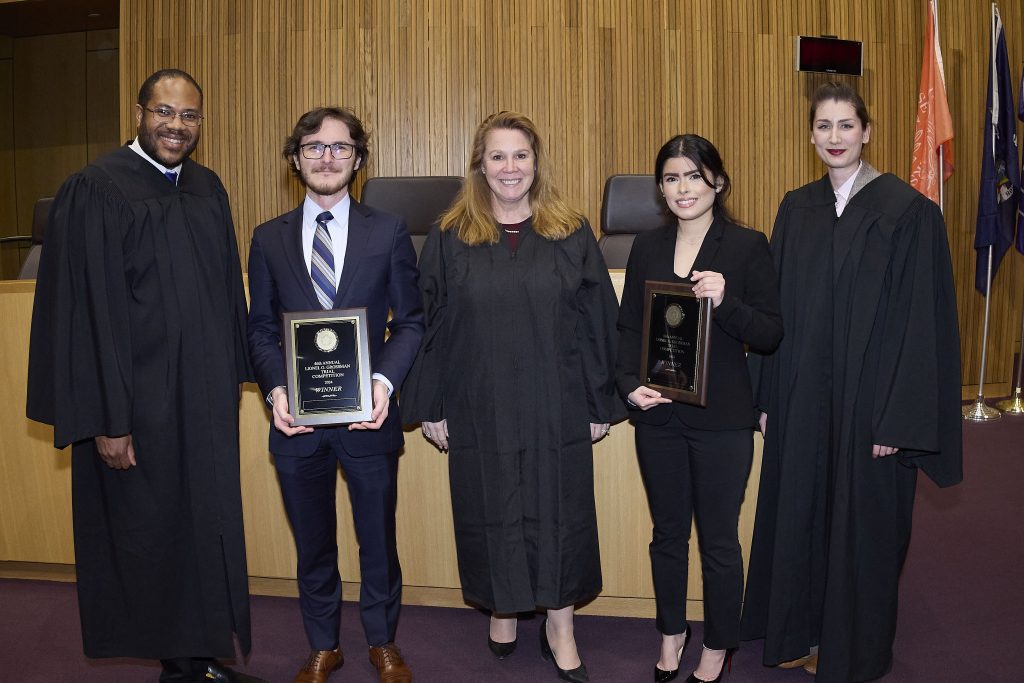
Carly Cross L’24
US District Court, Western District of New York in Buffalo, NY
Carly Cross L’24 is a first-generation college and law student. During her undergraduate career, she completed an internship with the United States Attorney’s Office for the Western District of New York (WDNY), where her passion for learning about the law came to fruition.
She later enrolled in Syracuse Law in 2021, soon undertaking more internship experiences as she planned her future career. Cross has since interned with the New York State Office of the Attorney General and Goldman Sachs Ayco Personal Financial Management. This semester, she elected to complete an externship with the United States District Court for the Western District of New York, working as a Judicial Law Clerk Extern for the Hon. Lawrence J. Vilardo in Buffalo, NY. Taking advantage of the Orange Flex program, she is spending her final semester living and working in Buffalo while completing her classes online through the JDinteractive program.

“I love that I get to be in court every day. Whenever Judge Vilardo is on the bench, I am present to observe the proceedings…I will be walking away from this externship knowing that I have aided in the drafting, writing, and editing of various federal judicial orders.”
Carly Cross L’24
The Externship Opportunity Fund made this unpaid externship and year away from Syracuse a possibility for Cross. She explains that she knew going into her 3L year she would be working for free, but “it was a risk I was willing to take because I knew that the opportunity waiting for me at the WDNY was going to change the trajectory of my career and life.”
Through working at her externship, Cross has solidified her conviction that she is heading in the right direction for her career and has developed a heightened enthusiasm for public interest and governmental service.

“I love that I get to be in court every day,” she explains. “Whenever Judge Vilardo is on the bench, I am present to observe the proceedings. I have found that I can learn just as much by attending a status conference as I can learn from attending a trial. I get to observe bright and brilliant attorneys in practice every day, which is helpful because I am someone who learns by the examples set in front of me. I also love that I get to improve my legal research and writing skills. A lot of my time is spent preparing screening orders for pro se litigant complaints filed in our District. I will be walking away from this externship knowing that I have aided in the drafting, writing, and editing of various federal judicial orders.”
Despite not being on campus, Cross is still involved with her classmates and community back in Syracuse. She serves as a Notes & Comment Editor for the Journal of International Law and Commerce, assisting 2L members with their notes they are preparing in hope of publication, and works as a Research Assistant in the Appellate Advocacy Skills course. She also served as the Student Representative for the Law School Faculty Curriculum Committee for the 2022-2023 school year, is the Treasurer of the Criminal Law Society, and is an Appellate Division Member of the Travis H.D. Lewin Advocacy Honor Society.

Cross is optimistic and excited about her post-graduate career. “Spending my third year of law school in the format of an externship has been truly invaluable for me,” she says. “I have been able to focus on fine-tuning my legal writing skills while learning how to write for an audience I have never written for. I also think this externship will give me a great edge when beginning my post-law grad career, as my knowledge and understanding of the federal court system is becoming vast (though I will never stop learning).”
She believes that taking advantage of externship opportunities as a law student will never hurt you. They will teach what you like and what you don’t like, and they may help you discover new passions you would have otherwise never thought of pursuing.

Expressing enduring gratitude for the mentors and influences in her life, particularly during challenging times, she extends her heartfelt thanks to those who have supported her and encouraged her to pursue her goals. Because of that support, “I was able to keep trudging along,” she says. “And eventually, the trudging with my head down turned into walking steadily with my head held high.”






